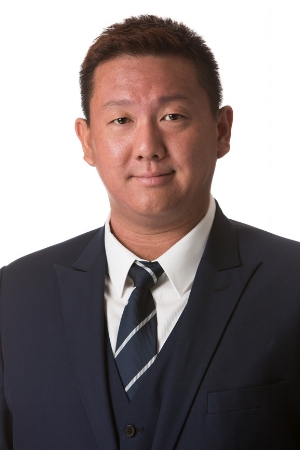One of my bosses said, “I think this will make you a better psychiatrist, and this is because you now know what it’s like to fail. Previously you had no idea what it was like to fail. You excelled and succeeded in everything. And now you can see that when your patients fail, you can feel a bit of that.”
The medical field, I think they kind of shun people who fail. And people who do fail, don’t talk about it, because they want to be seen as brilliant, successful, and never a failure. Whereas in business, the more I look, they talk about failure with pride. They go, “I started up ten companies, and all failed before I made Google.” They talk about failure with pride, and those who don’t talk about failure and don’t own it, they’re missing that opportunity to share with people. Everyone fails at something, in one way or another everyone fails at something. And people then tend to hide it and put it in a box and not share it with anyone.
We need to change the culture and say, “it’s okay to fail, lots of people fail, but what will you do with it?”. The famous words from Edison I think were, “It’s not that I’ve found the way to make a lightbulb, I’ve only found ten-thousand ways NOT to make a lightbulb.”
It’s about mindset change.
It’s like, “ok, I failed four times.” It’s not to say, “I failed and I’m useless,” it’s, “I’ve failed and found four different ways to not pass an exam, and I just need to find that one way to pass it.”
Reflecting on my failures in the exams, what held me back wasn’t anything to do with my knowledge. A lot of people think it’s the knowledge (that makes them fail), not knowing enough. For me, it was the anxiety levels. I went into the exam thinking, “what do the examiners want to hear?” But the time that I passed, I gave that away, I said “I don’t care what the examiners think.”
I think there could be more constructive ways in which our colleges could address failure. One way I think is to talk about it more, and to show that it’s not life or death if we fail, we can get through this, and be more supportive, be able to talk about it.
By having the courage to say “yes I failed my exams”; other people find doctors as quite intimidating, they’re seen as being super successful and smart, and when you can bring yourself down a bit and be humble and say “I failed”- everybody fails at something, whether it’s their driving test or something, failure is something everyone has in common, so when I bring it up, a lot of people can suddenly relate to it.
In business, that’s super important, so people are not intimidated by you, they have something to relate to you, and it builds relationships. A lot of my GPs, mental health nurses and staff, they like me for being open about it, rather than hiding it away, rather than bringing across this facade that I’m super brilliant, never failed in my life, top notch.
How do you view competition in business? Doctors have that win mentality, how do you manage that in business?
I welcome competition in business. I feel that if somebody can – if somebody else comes forth, it’s always anxiety related, like, “I must be better than them.” But what I do is look at the competitor, and ask, “did they actually evaluate? Did they actually have new ideas about improving telepsychiatry, did I do that, and if I didn’t do that, why can’t I do that? If there are no competitors, you are at risk of becoming complacent, and competitors bring excitement. So I ask, is there value-add, or do I just have to do my job?It can become about less value, more competing on price point. But I know it’s hard for other companies in this space to compete on price point.
What are your other plans for 2016?
Trying to balance. It’s tempting to focus just on private practice, but Conduit would fall by the wayside. For me, what I’m trying to do is allocate time to Conduit Health and allocate other times for private practice . I’ll try organise more talks for GPs including interstate, hosting events.
I love going out to rural communities and seeing them, they really don’t have much psychiatry services. Same with their GPs, they don’t have much support and can get very isolated without someone coming from the metropolitan areas to offer help.
We’ve received the odd referral from the Great Barrier Reef, the Northern Territory, Tasmania, but I want to increase that. In business I think this is something we do- go back to fundamentals, think “why did I start the company, what did I want to achieve?”
The more isolated rural places, I’d rather focus on them. In the semi-metropolitan places, people travel 1-2 hours, whereas in the NT there’s no psychiatrist for a few hundred k’s.
The other thing will be statistics. Looking at 2015, we’ve been collecting data about how many patients we’re seeing, the outcomes, sending surveys to patients and GPs. Being able to publish them and say “this is where psychiatry services are at, this is what we’ve done.” Entrepreneurship is 24/7. It is on my mind 24/7. Even if you’re not doing something on it, it’s on my mind. My admin staff, everything, it’s on you. It’s like having a baby, it’s 24 hours, no escaping. Something people wanting to get into business need to be aware of. It can be like medicine, it can be all-consuming.
A few years from now, I’d really like to get government involved so that I can provide telepsychiatry services to public hospitals. Public services can be quite stretched, but for a private company like mine, that’s what we can offer.
What are lessons that medical professionals and people from other industries can learn about starting in business?
Guy Kawasaki’s lesson is, it’s not about how are we doing things now and how can we do things better; it’s about, “what is the next curve?” Conduit Health is jumping on the next curve. Not just about how to improve how doctors see patients face-to-face, sure there’s a lot of work to be done there, but if you want to jump on the next curve, (you’ve got to create) innovation.
Not too many doctors by nature are entrepreneurial. A large part of that is because we get comfortable doing our daily job. See patients, make a living. Innovation and startups are a huge risk. It’s out of our comfort zone. We stop seeing patients, and suddenly your startup becomes the neediest patient you’ve ever had.
It’s important to get this out there. It’s people like you, me, people who dare. And hopefully this will help a lot of people find, “this has been inside me, this has been in the back of my mind, but I’m too scared to do anything about it.
Thankyou for your support of The Medical Startup and Greg’s interview. You can view Parts 1 and 2 of Greg’s interview by clicking here and here.
If you wish to contact Greg for more enquiries about Conduit Health, or to sign up as a GP or psychiatrist for his service, please emailenquiries@conduithealth.com.au. Conduit Health is also on Facebook.
Please note: In the medical world, “consultant” refers to a fully-qualified ie. board-certified specialist. “Registrar” is a doctor who’s a member of a training program and preparing to qualify for this certification. “Resident” is pre-registrar; “Intern” or “Houseman” is first-year out of medical training.




